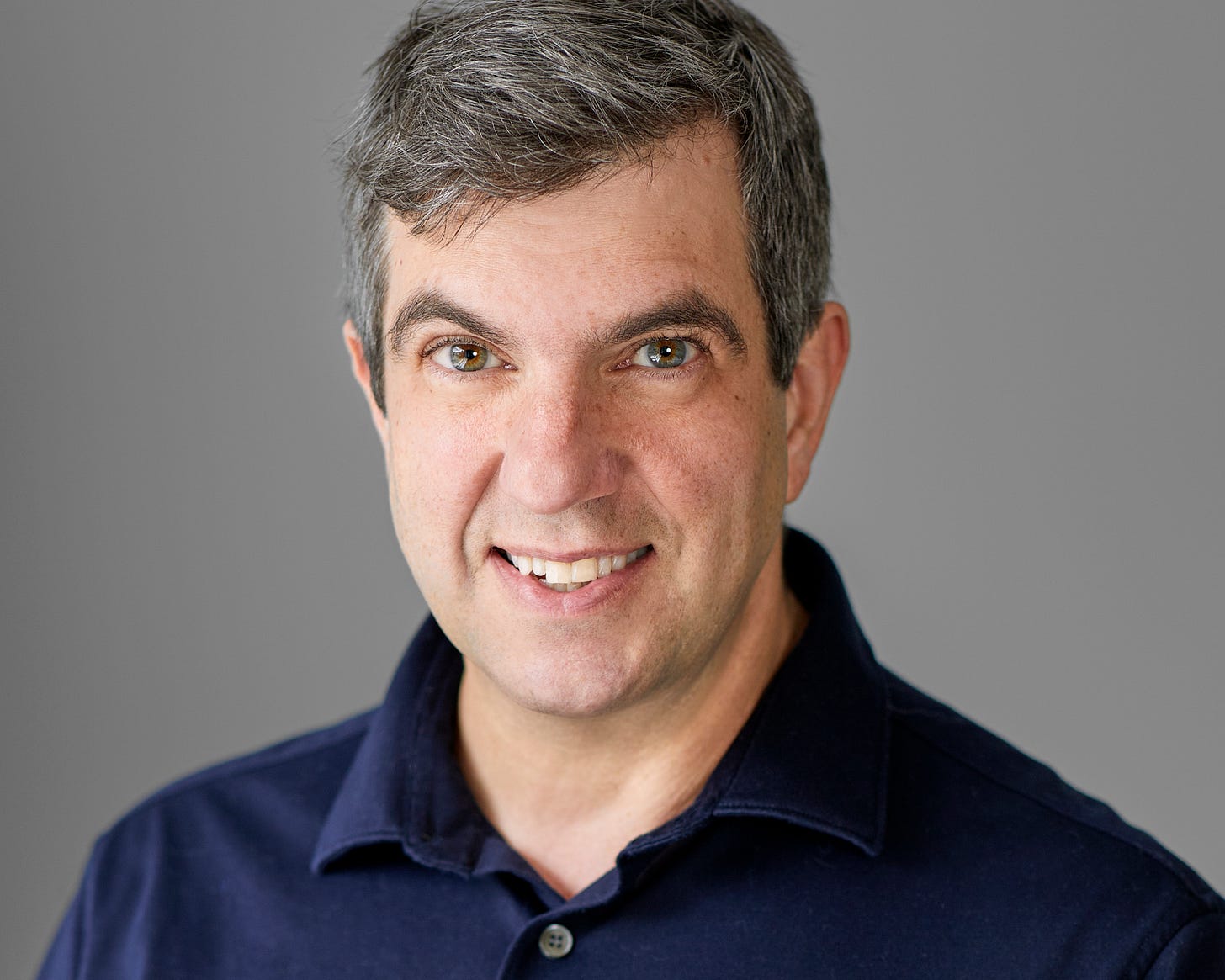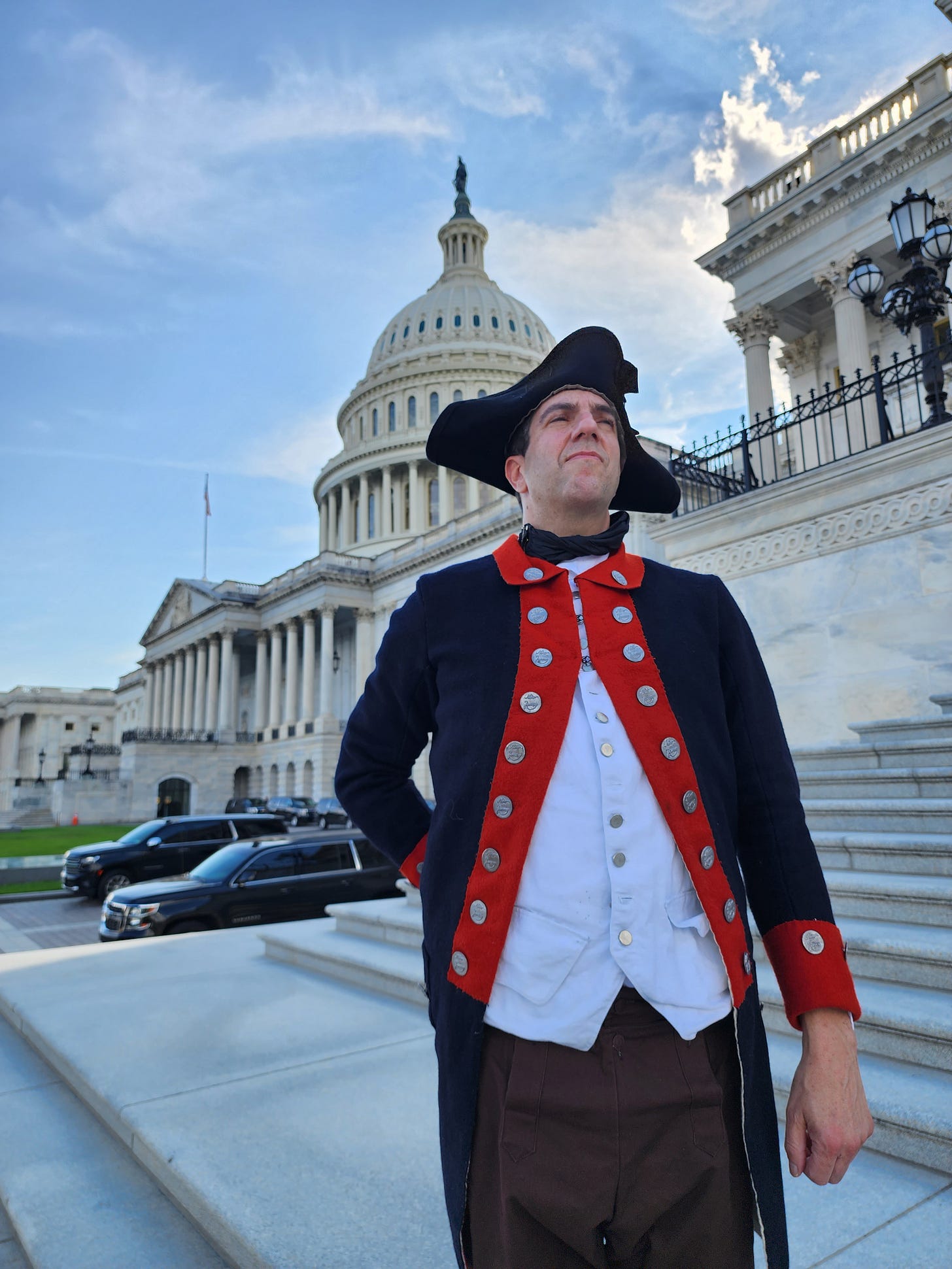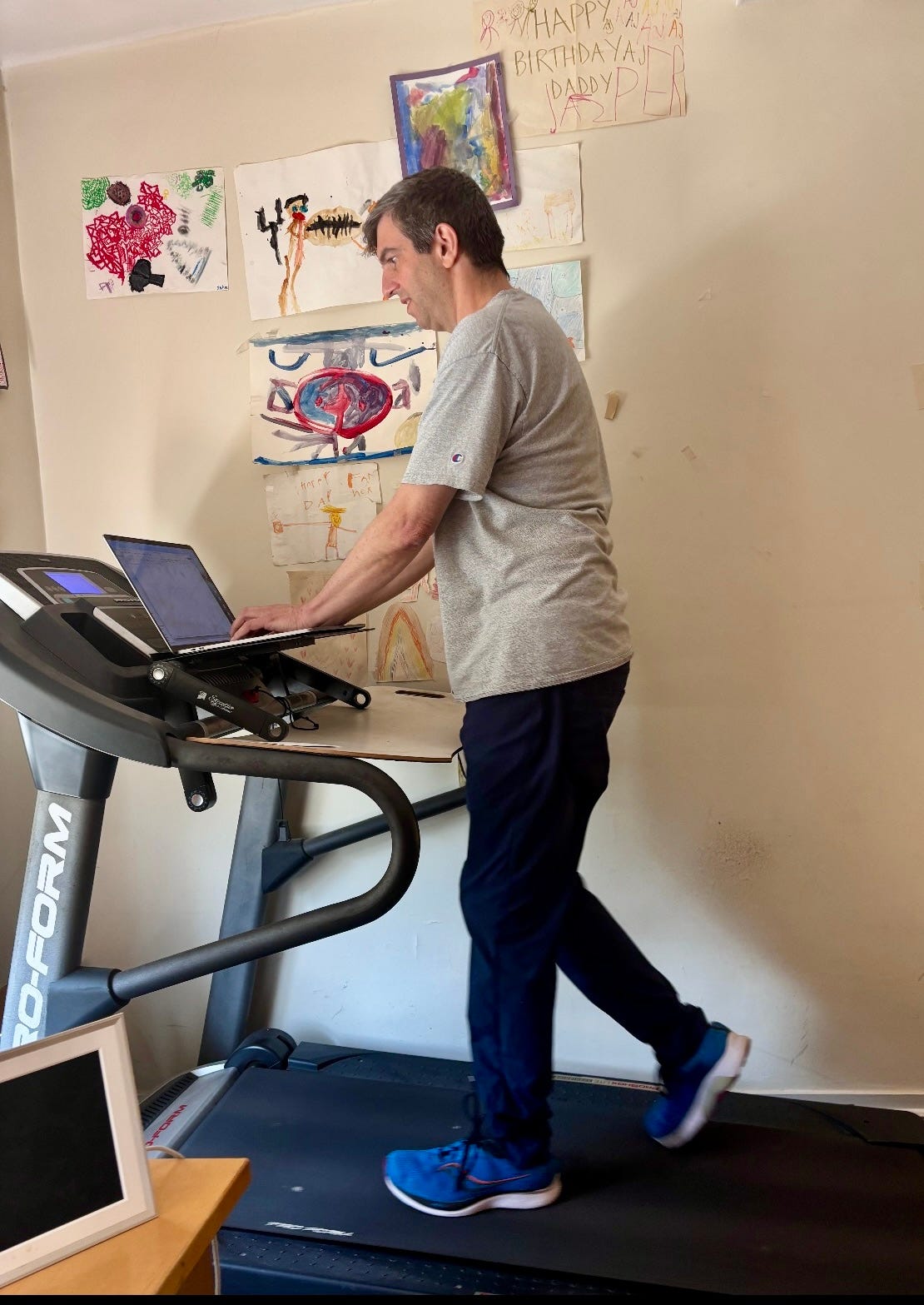What Writers Can Learn from the World’s Most Curious Man
21 Questions with A.J. Jacobs, the journalist who makes life one long experiment.
A.J. Jacobs has built a writing career out of extreme curiosity—and even more extreme commitment. He’s read the entire Encyclopedia Britannica (The Know-It-All), lived by every rule in the Bible (The Year of Living Biblically), and thanked a thousand people who made his morning coffee possible (Thanks a Thousand). His latest adventure? Living by the U.S. Constitution’s original meaning (The Year of Living Constitutionally), which involved carrying a musket, quartering a soldier, and writing with a goose quill pen.
But beneath the stunts and satire is a surprisingly practical approach to the creative life. In this edition of 21 Questions, A.J. shares how he comes up with new ideas every morning, why bureaucracy counts as art, and how to keep writing even when the Muse is ghosting you.
—Panio Gianopoulos
21 Questions for A.J. Jacobs
1. I couldn’t have written my last book without… my quill pen. My most recent book was about trying to understand the U.S. Constitution by adopting the mindset and tools of the Founding Fathers—and that included writing much of the book with a goose quill pen. I realize it was a bit goofy, but it was also revelatory. Writing by hand changed the way I thought and wrote. Being off-line freed me from the pings and dings of the Internet and allowed me to think more deeply and subtly.
2. What’s the thing most people get wrong about being a writer? The Muse is overrated. I think it’s a bad idea to wait around for the Muse to strike. If I want to meet my deadlines, I have to write whether I’m feeling a divine inspiration or not. (Though I still end up missing most deadlines).
3. Hemingway wrote standing up; Edith Wharton, lying down. What are your quirks? I once wrote a book about trying to be the healthiest person on planet earth, and I wrote that book while walking on a treadmill desk. It took me a couple thousand miles. I still write on my treadmill desk—sort of. I write emails while plodding away at a 12-degree incline. But when I’m writing a chapter where I really need to focus, I write on a dilapidated Aeron chair.
4. Is there a book you wish you’d written? At Home: A Short History of Private Life by Bill Bryson, in which he wrote about the surprising history of everything in the home, from furniture to bathrooms. I love the idea of revealing the sublime world right in front of our faces, or in the case of sofas, under our asses.
5. What keeps you up at night? So much! Which is why I’m a big fan of “cognitive shuffling.” It’s the best way I’ve found to fall asleep.
6. Where do you find new ideas? Every morning, I try to spend fifteen minutes brainstorming ideas. Just random ideas. They could be for articles, books, events, or ideas with no obvious application. I’d estimate that 98 percent of these morning-ritual ideas are crap. But then there’s that 2 percent that actually yield something worthwhile.
7. Have any tech tools made your job easier? I do my 15 minutes of brainstorming on a Remarkable tablet, one of those gadgets with a stylus that allows you to scribble on the screen. I like it partly because I still haven’t figured out how to connect it to the Internet, so I’m able to write without distraction.
8. How has AI changed your writing process? I find AI to be a helpful researcher. I have a podcast (The Puzzler), and I recently had an editor of The Atlantic magazine as a guest. I asked ChatGPT for a list of interesting nuggets from the magazine’s history. It gave me some good ones that I hadn’t found on Google (including that The Atlantic published what it claimed were love letters from a young Abe Lincoln, but which turned out to be forged). Of course, AI is a researcher that needs to be double or triple-checked, because it does have a hallucination problem.
9. What’s the best piece of professional advice you’ve ever received? This might sound weird, but it was from the artist Christo, the guy who wrapped buildings. I was interviewing Christo for an article, and I asked him how he had the patience to stay with his Central Park Gates project even though it took him more than twenty years to navigate the city bureaucracy and get permission. Christo replied that he considers navigating the bureaucracy part of the artistic process. I loved that he reframed the boring stuff as part of the art! It inspired me to reframe marketing and publicity—which I used to dread—as part of the writing process.
10. And the worst? A famous editor told me to get a degree in anthropology. Who knows, maybe it would have made me a better journalist. But it would also have racked up some unpleasant debt.
11. What is the one piece of advice you would give to recent graduates that want to make a living as a writer? For better or worse (I think worse), we live in a visual culture. So I always record my projects on video (e.g. walking around Manhattan in a biblical robe), and it’s been hugely helpful in terms of getting on talk shows and social media.
12. Whose career do you most admire and why? The eighteenth-century writer Johann Wolfgang Goethe. Pretentious, I know! But to explain: For my first book, I read the Encyclopedia Britannica, and Goethe was one of the most interesting historical characters I ran across. He wasn’t just a writer. He was also a painter, botanist, biologist, color theorist, theater manager, mine inspector and clothing designer—a true Renaissance Man. I’m a fan of polymaths and I long for the days when people could be generalists, not specialists.
13. Foreign rights, audio rights, film rights: which have been the most valuable to you? Financially, film rights. I had several of my books and articles optioned by Hollywood producers. Only one actually made it to the screen. And honestly, I didn’t love the final product—CBS turned The Year of Living Biblically into a (blessedly) short-lived sitcom. I had zero control over the content, as do most writers who are not named Stephen King. Still, it was a delightful experience to visit the set and enjoy the craft services.
14. How did you find your agent? The most unlikely way possible: Cold calling. I wrote letters (not emails—it was 1992) to a bunch of people I found in a book called The Writer’s Market. I got lucky and ended up getting a response from ICM (now CAA).
15. Coffee, tea, or something stronger? Coffee. In fact, I wrote an entire book about my love of coffee, and how I thanked a thousand people who had anything to do with its creation.
16. What's the most effective way you've found to build your email list? Still figuring that one out. That’s why I joined the Author Insider! But one strategy that worked: I wrote a book about my love of puzzles, and to promote the book, I hid a puzzle in the book that you could solve online. That got me a nice email list boost.
17. How many drafts before you show your editor? I love to show drafts of my book to my friends before I send it to the editor. I’ll show ten friends and ask them, “Which chapters do you like best and which do you like least.” If seven people say Chapter 4 is slow, I know it will require some fixing.
18. Can you describe your ideal workday? I used to be a night owl. But I’ve recently done a 180. I now wake up at 5 a.m. (partly inspired by early bird Ben Franklin, whom I wrote about in my latest book). I do my morning ritual (including those 15 minutes of brainstorming and solving some New York Times puzzles). After that, I try to tackle the hardest writing. I find that I think more clearly in the morning, so it’s best to start with the tough stuff. (I’m a fan of Daniel Pink’s phrase “eat the frog”). Then in the afternoon, I do interviews or write emails.
19. What do you wish you’d known when you were starting out? How much luck is involved. You need talent, you need hard work, but you also need luck. So much is about being at the right time at the right place and having made the right random connection. Keeping this in mind helps me avoid smugness during good times, and self-reproach during hard times.
20. Fill in the blank: In five years, successful authors will all be… too smart to try to predict the future, because they will realize that the world is changing in strange and random ways at a jaw-dropping rate.
21. What is your new book about? The Constitution. I tried to follow the Constitution’s original meaning in order to understand how we should view it today. I carried a musket, I quartered a soldier in my New York apartment. What I learned has helped me in processing current events. For instance, I find it interesting that many of the Founders hated the idea of a single president. They wanted a council of presidents. One Constitutional delegate called having a single president “the fetus of monarchy.” Seems to me the fetus is now out of the womb.
Any new projects the Author Insider community can help support?
I started a Substack! And I’m loving how easy the process is. I’m particularly fond of an essay in which I advocate my new hobby of Moodwatching, which is like birdwatching, but for emotions. Moodwatching has been a huge help. It helps me spot gratitude every day, which I might otherwise overlook.
Which of A.J.’s habits or insights resonated with you most? Ever tried writing on a treadmill? Prefer using a pen/pencil/quill? Hit reply or drop a comment—I’d love to hear what stuck with you.




